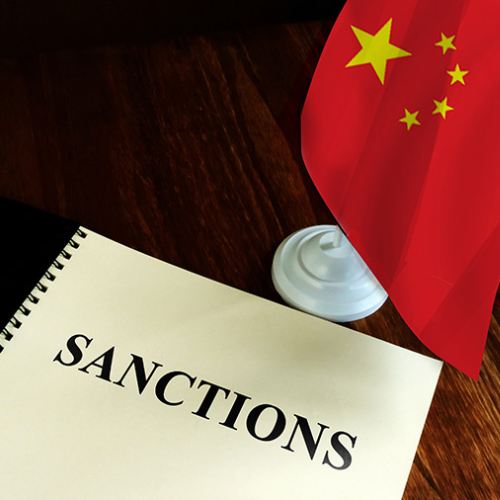China has taken a strong step by introducing a new law designed to fight back against foreign sanctions that target its people and businesses. On March 23, 2025, the government officially put this law into effect. This law gives China the tools to respond to sanctions that other countries might place on Chinese companies or individuals. Let’s break down what this means in simple terms.
What Is This New Law About?
This new law, called the Implementation of the Anti-Foreign Sanctions Law, is all about protecting China from unfair treatment by other countries. Sometimes, foreign governments put restrictions or punishments on Chinese companies or people because of political or trade disagreements. These are called sanctions.
Now, with this new law, China can respond by creating its own list of people, companies, or groups that it believes are acting against China’s interests. If someone is put on this list, China can take different actions to limit what those people or companies can do in China.
For example, the law says if a foreign country puts unfair rules on Chinese companies or people, China’s government can decide to “counter-designate” or label the foreign people or companies involved. This means they can face restrictions or penalties from China.
Who Can Be Targeted and What Happens?
Under this law, the Chinese government can target companies or individuals that it believes harm China’s safety, development, or sovereignty (which means its right to govern itself without interference). These targets are chosen by official government departments under the State Council, which is a top part of China’s government.
Once a person or company is listed, China can take several serious actions against them:
- They might be stopped from entering China or could be forced to leave if they are already in the country.
- Their money and property inside China can be frozen or taken away. This includes cash, bank accounts, shares in companies, patents, or even money they are owed.
- They could be banned from doing business with Chinese people or companies.
- They might be stopped from importing or exporting certain goods or technology to and from China.
The law also explains that the property that can be taken away is not just physical things like buildings or money. It also covers intangible property like intellectual property rights (for example, patents or copyrights) and accounts receivable (money others owe them).
Moreover, the law lists many areas where cooperation or business might be stopped or limited. These include education, science and technology, legal work, protecting the environment, trade and economy, culture, tourism, health, and sports.
How Can People or Companies Respond?
If a person or company is put on the list and faces these restrictions, they are allowed to ask the Chinese government to stop or lift the countermeasures. To do this, they have to fix the issues that led to their designation and work to reduce the harm caused.
The law also says that the government can change or add conditions to the restrictions if needed. This means the rules can be adjusted depending on the situation.
Several government departments in China will be responsible for carrying out these countermeasures. These departments must work together and share information to make sure the counter-sanctions are effective and consistent.


